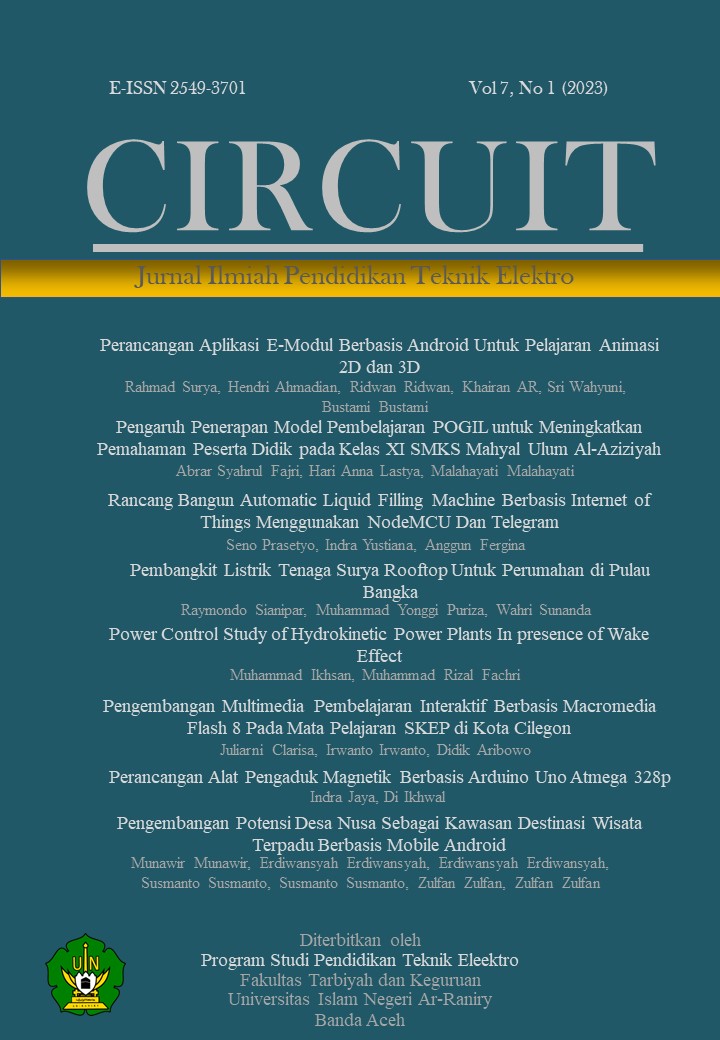Pengaruh Penerapan Model Pembelajaran POGIL untuk Meningkatkan Pemahaman Peserta Didik pada Kelas XI SMKS Mahyal Ulum Al-Aziziyah
DOI:
https://doi.org/10.22373/crc.v7i2.14284Keywords:
POGIL, Learning model, Student Centre Learning, Collaborative LearningAbstract
The POGIL model is a student-centered learning model with a collaborative learning type using guided inquiry that improves students' understanding of the learning process. However, the research aims to see changes in student's conceptual understanding before and after the implementation of the POGIL model. The research methodology uses a quantitative approach with a quasi-experimental one-shot case study involving 14 students of SMKS Mahyal Ulum in the motorcycle ignition system material department with data collection carried out by tests (pre-test and post-test). The results showed that the average score for the pre-test was 42, 14 while the post-test results had an average score of 63, 57. It is proven that the POGIL learning model can increase students' understanding of learning by 33, 71%. The results of the hypothesis test using the t-test obtained a value of 0.024 > 0.05 so Ho is rejected and Ha is accepted. From the research, it could be concluded that the POGIL is believed to improve students' knowledge.
Downloads
Published
Issue
Section
License
Authors who publish in CIRCUIT: Jurnal Ilmiah Pendidikan Teknik Elektro agree to the following terms:
- Authors retain copyright and grant the journal right of first publication with the work licensed under a Creative Commons Attribution-ShareAlike 4.0 International License (CC BY-SA 4.0) that allows others to share and adapt the work with an acknowledgement of the authorship and initial publication in this journal
- Authors are able to enter into separate, additional contractual arrangements for the non-exclusive distribution of the journal's published version of the work (e.g., post it to an institutional repository or publish it in a book), with an acknowledgment of its initial publication in this journal.
- Authors are permitted and encouraged to post their work online (e.g., in institutional repositories or on their website) prior to and during the submission process, as it can lead to productive exchanges, as well as earlier and greater citation of published work. (See The Effect of Open Acces)

